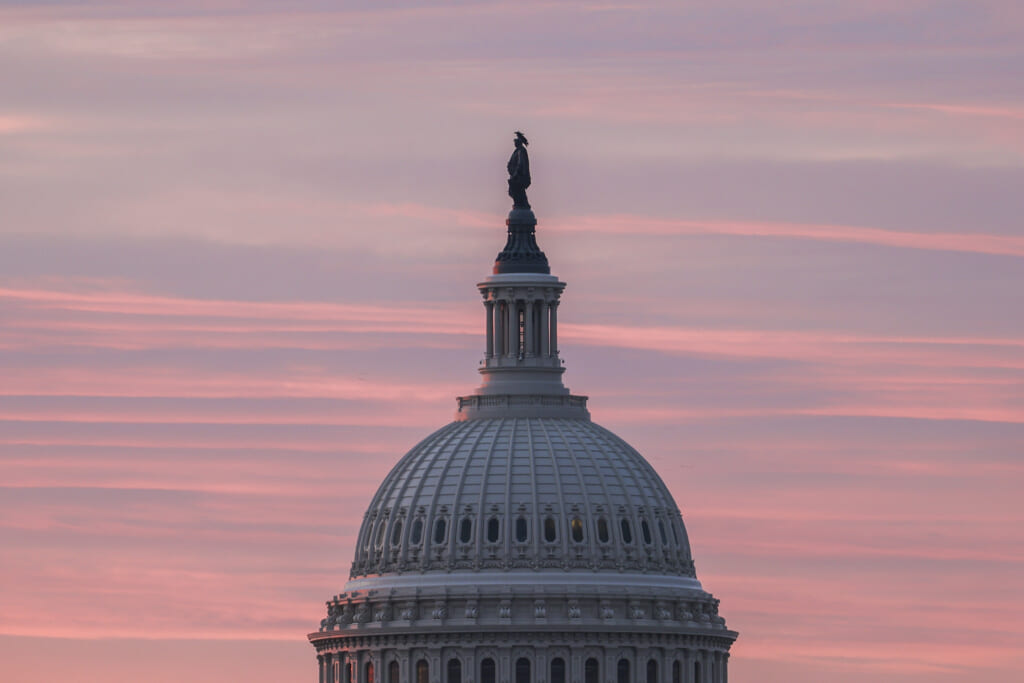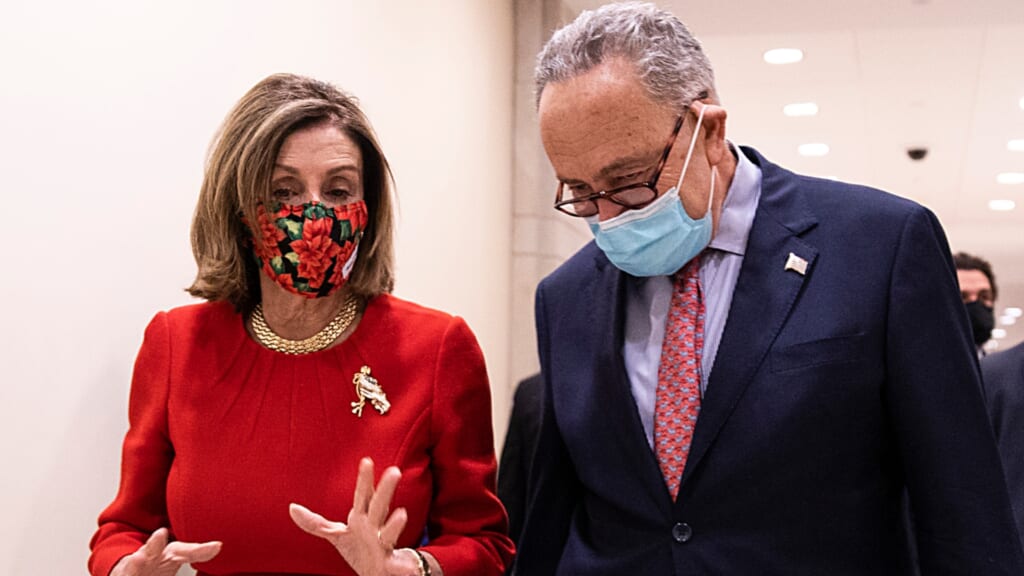Looming government shutdown could critically hurt Black communities
EXCLUSIVE: For Black America this shutdown could compound hurt on top of hurt as loss of payment could further damage access to credit for many.
“A [Government] shutdown is neither necessary nor good,” cautions Nation Urban League President Marc Morial. For Black America’s sake, the consequences of a federal shutdown could push communities over the brink of financial ruin.
According to reports, nearly 20% of African Americans make up the federal workforce. The thought has been that government employment is stable with good pay and benefits. But amid an ongoing pandemic and now a looming federal government shutdown — evidenced by Senate Republicans on Monday blocking a spending bill that would fund the government through early December — those thoughts are presently being challenged.

The White House is staring down a barrel of life and death issues, and now a possible government shutdown that has overcast Washington just before the fiscal year for the government is set to end on Sept. 30.
House Democrats are calling out every single Republican who voted against keeping the government running.
In a statement provided to TheGrio, House Democratic Caucus Chair, Congressman Hakeem Jeffries, blasted the GOP for their impasse on subverting a government shutdown.
“If Republicans successfully shutdown the government, the African-American community will be hit hard in terms of public health, public safety, public transportation, public education and public housing,” the New York Democrat said. “But many of my colleagues on the other side of the aisle don’t seem to give a damn.”
At Monday’s White House press briefing where TheGrio was present, Press Secretary Jen Psaki said,”The president is engaged with a broad number” of people to work on preventing a government shutdown. But many journalists in the room have pointed out that even within the Democratic Party, there are not enough votes to get the spending package through Congress.

President Joe Biden is said to have space in his schedule to have phone calls and in-person meetings with Congressional lawmakers to bolster support for funding the government and getting his infrastructure plan passed. A Hail Mary deal could be reached between both parties by Thursday to prevent a shutdown, but like most things in Washington, the issue remains uncertain.
As politics continues to be at play in the nation’s capital, the current state of the American economy is tender despite the Biden administration’s efforts to stave off recession or worse.
For some within the Biden administration who have been through several administrations and seen highs and lows before, their strategy for weathering the storm centers on operating from the middle or “never let yourself get too high or too low” as one senior staffer of the Oval Office explained to TheGrio.
The Partnership for Public Service in 2021 that found people of color make up about 40% of the U.S. population and about 38% of the full-time federal workforce.
No matter the numbers, there is a harsh cost to any disruption linked to a shutdown. As Urban League’s Morial points out, “vital programs-Medicaid, Medicare and others could be affected as things stop or slow down.”
For Black America this shutdown could compound hurt on top of hurt as loss of payment could further damage access to credit for many.
“If they don’t pay the bills, it goes against their credit. You know, it could affect people’s security clearances,” said Everett Kelley, national president of the American Federation of Government Employees, which is the largest union representing federal and D.C. government employees. “If you lose your security clearance, you lose your job.”

During the Donald Trump administration the nation saw the longest government shutdown in history lasting 34 days. Some government paychecks were impacted by this gap.
During the federal shutdown of 2018, Kelley told TheGrio his union was able to work with some creditors and Congress to get relief for his members whose credit scores were hit hard by the loss of wages and defaults on payments.
According to Kelley, the loss of work for his members could curtail “economic growth in the quarter by a full tenth of a percentage point, just the kind of economic slowdown American workers can’t afford as the economy continues to recover” from the pandemic.
Elroy Sailor, a businessman and former Capitol Hill senior staffer, has a unique perch as an advisor to both Democrat and Republican elected officials. “Government shutdowns under Trump and Obama cost the taxpayers around $7 billion and countless dollars in lost revenue to small businesses,” Sailor told TheGrio.
“True leadership is working together to keep the government functioning — this is one reason why there is so much division in our country. Our leaders both Republican and Democrats, have yet to figure out how to work together.”

The idea of a shutdown has ripple effects in the broader community that can severely impact those who are already on the lowest economic rungs of the economy.
A shutdown would hit the pocketbook and make problems worse for areas already suffering economically. Already, prices at the grocery store are up. The U.S. Department of Agriculture is currently investigating “wrongdoing” in profiteering with manufactures like Tyson Foods and others.
In addition to high costs of foods and services, housing for Black and Brown Americans could also be impacted by a government shutdown as the eviction moratorium lifted after a Supreme Court ruling last month, creating less of a safety net for those who can’t pay mortgage or rent. Not to mention rental and housing prices are up due to conglomerates buying up inventory and driving up prices for homes and rental units.
Since 1976, there have been 21 shutdown funding gaps with the second longest being during the Bill Clinton administration in 1995 with 21 days of a government shutdown. As a historic note, the Monica Lewinsky affair began during that shutdown when there was not many staff members around in the White House. Lewinsky, a White House intern at the time, had delivered pizza to the president.
Have you subscribed to theGrio’s “Dear Culture” podcast? Download our newest episodes now!
TheGrio is now on Apple TV, Amazon Fire and Roku. Download theGrio.com today!
More About:Politics



